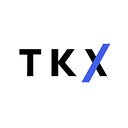Jito: Maximizing Yield for SOL | TKX Weekly
by @uuwagyuu
sponsor TKX CAPITAL
After the FTX collapse, Solana’s strong comeback is led by its resilient developer community and a significant rise in its token price from low $20s to around $115. Jito, launched post-FTX in November 2022, played a pivotal role in this recovery. It quickly emerged as a key player in Solana’s ecosystem, with its Total Value Locked (TVL) skyrocketing from an initial $4 million to over $300 million within a year, making it the second-largest protocol in Solana’s liquidity staking space, just behind Marinade Finance. By January 2024, Jito’s TVL had further increased to $630M.
Intro
Jito is an LSD protocol in the Solana ecosystem, offering a liquid staking service that uniquely combines staking rewards with MEV (Maximum Extractable Value) rewards. This approach provides $SOL holders with a different way to stake their tokens through JitoSOL, a liquid staking token. JitoSOL stands out by offering additional rewards from MEV transactions on Solana and prioritizes staking with validators that enhance network performance. Jito’s focus is on maximizing yield for JitoSOL holders while contributing to the overall efficiency and improvement of the Solana network.
In August 2022, Jito Labs raised $10 million in a funding round to develop MEV infrastructure for Solana, led by Multicoin Capital and Framework Ventures, with participation from Solana Ventures and Anatoly Yakovenko, co-founder of Solana Labs.
Solving Solana’s MEV Challenges
Solana’s network often gets congested because traders aggressively try to profit from MEV, causing spam by repeatedly sending transactions. Jito aims to solve this by introducing a new system. This system works through an auction where traders bid on transaction sequences they think will be profitable. Jito’s block engines then simulate to identify the most valuable transaction combinations. These selected transactions are processed by validators, benefiting both them and JitoSOL stakers. This approach effectively tackles spam and boosts rewards for stakers.
How it works?
Jito-Solana introduces an auction mechanism similar to Ethereum’s Flashbots for Solana’s validators, allowing traders to submit bids on transaction sequences they believe are profitable. This process is managed efficiently through three main steps:
- Transaction Handling: Jito-Solana oversees communications and coordinates with relayers and block engines for efficient transaction processing.
- MEV Opportunity Utilization: During block production, validators benefit from MEV, with the system simulating and selecting the most valuable transaction combinations.
- Revenue Distribution: The generated revenue from these MEV opportunities is fairly distributed to validators and stakers, following each validator’s fee parameters.
This approach effectively counters spam attacks and boosts rewards for token holders, enhancing network efficiency and profitability.
Risk
The risk in Solana’s current stake management is centralized control. A single hot wallet controlling stake movements can be a security concern. If compromised, it could unfairly favor certain validators. To address this, Jito launched StakeNet.
StakeNet is designed to improve the decentralization and security of stake management on the Solana network. The system reduces centralized control risks by automating stake delegation through on-chain data and algorithms. It ensures a fair and efficient distribution of stakes to validators, enhancing the overall health and security of the network.
Data
Jito’s rise in the Solana ecosystem was significantly boosted in October 2023 when Lido withdrew support for $SOL staking. This move redirected stSOL holders to look for other staking options, with Jito emerging as a favorable choice due to its additional MEV rewards alongside regular staking benefits. This transition played a crucial role in increasing Jito’s Total Value Locked (TVL) to 7 million $SOL, showcasing its capability to effectively absorb and manage the redirected stSOL.
Thought
Jito’s core strength lies in capturing and distributing MEV value in the Solana ecosystem, a competitive edge that grows as the network activity increases. This positions Jito as a promising contender in the Liquid Staking DeFi space, challenging established protocols like Marinade.
Reference
https://www.theblock.co/post/163011/jito-labs-raises-funding-solana-mev-infrastructure
https://www.jito.network/docs/jitosol/introduction-to-jito/
https://www.jito.network/blog/a-deep-dive-into-stakenet/
https://www.jito.network/blog/jito-solana-is-now-open-source/
https://www.jito.network/stats/
